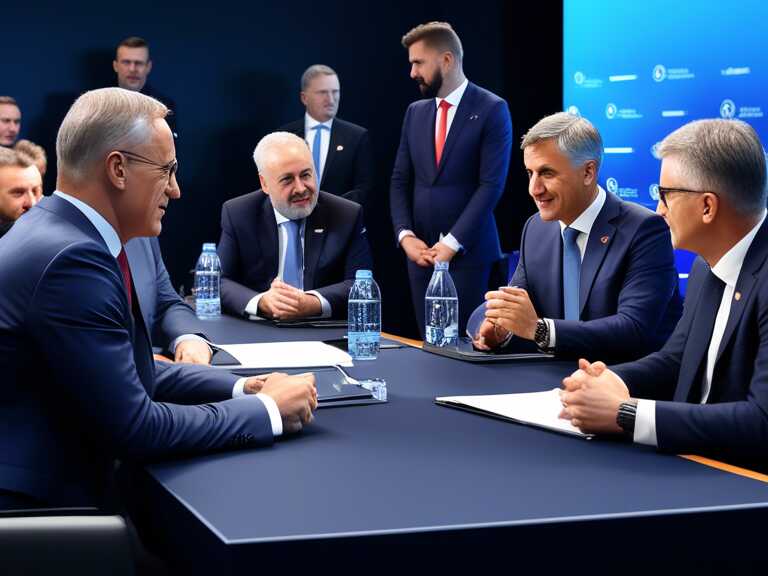
NATO Summit Highlights Complex Global Dynamics and Support for Ukraine
NATO summit shows complex world with Russia-China alignment, China enabling Russia's aggression in Ukraine.

During the NATO summit this week, Secretary-General Jens Stoltenberg highlighted the growing complexity of the world, as Australia, Japan, New Zealand, and South Korea's presence at the summit demonstrated. Stoltenberg emphasized the alignment of Russia, China, North Korea, and Iran, citing the war in Ukraine as an example of their shared interests. He pointed out that China is a key enabler of Russia's aggression against Ukraine.
Rising Stakes
Stoltenberg underlined the high stakes involved, asserting that the success of Putin in Ukraine would not only embolden him but also President Xi of China. He echoed the concerns expressed by the Japanese prime minister, emphasizing that the events in Ukraine today could have implications for Asia tomorrow.
With its 75th-anniversary summit in Washington, NATO, established in 1949 as a response to Soviet dominance in Eastern Europe, now comprises 32 member countries. Finland and Sweden have joined the alliance since the Russia-Ukraine conflict began. However, Ukraine's formal invitation to join NATO remains pending, with the timing uncertain.
Commitment to Ukraine
Stoltenberg reassured that the summit will involve crucial decisions to enhance support for Ukraine. NATO will take over the coordination of security assistance to Ukraine, signaling a firm commitment to bolstering the country's defense against Russian aggression.
Addressing the recent visit by the Hungarian Prime Minister to Moscow, Stoltenberg clarified that the alliance's focus is on supporting Ukraine, rather than engaging in peace negotiations that could result in the continued occupation of Ukrainian territory by Russian forces. He emphasized the unanimous agreement among NATO members to do more for Ukraine, regardless of individual diplomatic initiatives.
Leadership Transition and Future Outlook
Marking the conclusion of his leadership, Stoltenberg announced that the current summit would be his last as Secretary-General. He is set to be succeeded by former Dutch Prime Minister Mark Rutte. Stoltenberg declined to comment on U.S. President Joe Biden's fitness for office or any matters related to the 2024 American elections, emphasizing NATO's role as non-partisan and focused on its core mission.
Share news















